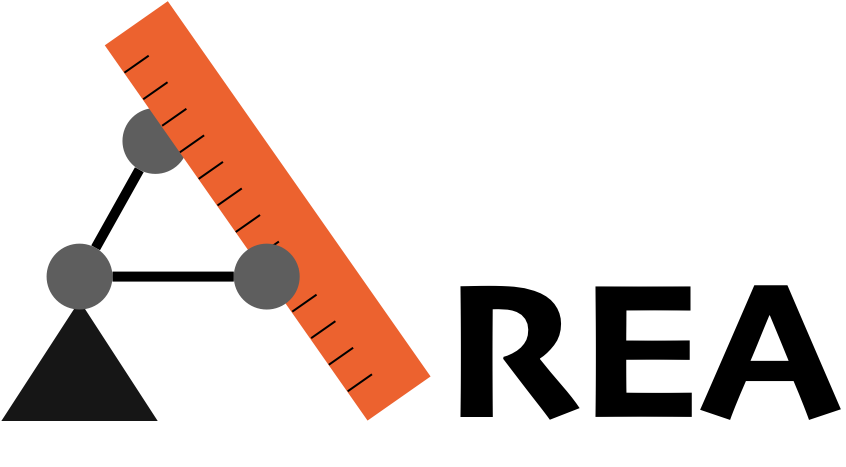Second Workshop on Agents and Robots for reliable Engineered Autonomy
Special Issue
We are organising a special issue based on the topics of the Workshop for the Robotics journal. More information can be found here.
Proceedings
The AREA 2022 proceedings are available at https://cgi.cse.unsw.edu.au/~eptcs/content.cgi?AREA2022.
Recordings
The recordings of the AREA 2022 workshop are available at https://youtube.com/playlist?list=PLcWHQv5jcNZrqAzVOPmmWBL4_0t1CQih1.
Workshop Programme : Sunday 24th of July
Time in CEST timezone.
| 09:00 | Welcome | |||
|---|---|---|---|---|
| 09:05 | Invited talk: Brian Logan [Chair: Rafael C. Cardoso] Title: Synthesis of Fail-Safe Behaviours Abstract: Reactive synthesis techniques have been proposed as a way to automate the production of software for autonomous cyber-physical systems. Such techniques have the advantage that the resulting software is guaranteed to realise a given target behaviour if the behaviour and models of the resources provided as input are themselves correct. ... | |||
| 09:40 | Session: Verification [Chair: Fabio Papacchini] Careful autonomous agents in environments with multiple common resources Rodica Condurache, Catalin Dima, Madalina Jitaru, Youssouf Oualhadj and Nicolas Troquard Modelling the Turtle Python library in CSP Dara MacConville, Marie Farrell, Matthew Luckcuck and Rosemary Monahan RV4JaCa - Runtime Verification for Multi-Agent Systems Débora C. Engelmann, Angelo Ferrando, Alison R. Panisson, Davide Ancona, Rafael H. Bordini and Viviana Mascardi | |||
| 10:35 | Session: Planning and Learning [Chair: Rafael C. Cardoso] Model Compression for Resource-Constrained Mobile Robots Timotheos Souroulla, Alberto Yukinobu Hata, Ahmad Terra, Özer Özkahraman and Rafia Inam | |||
| 10:55 | Break | |||
| 11:15 | Session: Planning and Learning [Chair: Rafael C. Cardoso] Temporal Planning with Incomplete Knowledge and Perceptual Information Yaniel Carreno, Yvan Petillot and Ron Petrick | |||
| 11:35 | Invited talk: Ana Cavalcanti [Chair: Angelo Ferrando] Title: RoboWorld: assumption language for robotic systems Abstract: Robots affect and are affected by the environment. Operational requirements often restrict the conditions in which a robot can be used, and many of the expected and desirable properties of a robotic system depend on properties of its environment. Defining a complete model of the environment is not possible, in general, but it is possible to capture assumptions about the environment. ... | |||
| 12:10 | Session: Engineering [Chair: Angelo Ferrando] Towards VEsNA, a Framework for Managing Virtual Environments via Natural Language Agents Andrea Gatti and Viviana Mascardi The Need for a Meta-Architecture for Robot Autonomy Stalin Muñoz Gutiérrez and Gerald Steinbauer-Wagner Towards Plug’n Play Task-Level Autonomy for Robotics Using POMDPs and Generative Models Or Wertheim, Dan Suissa and Ronen Brafman | |||
| 13:10 | Closing remarks | |||
Aim
Autonomous agents is a well-established area that has been researched for decades, both from a design and implementation viewpoint. Nonetheless, the application of agents in real-world scenarios has largely been adopted in applications which are primarily software based, and remains limited in applications which involve physical interaction. In parallel, robots are no longer used only in tightly constrained industrial applications but are instead being applied in an increasing number of domains, ranging from robotic assistants to search and rescue, where the working environment is both dynamic and underspecified, and may involve interactions between multiple robots and humans.
This presents significant challenges to traditional software engineering methodologies. Increased autonomy is an important route to enabling robotic applications to function in these environments, and autonomous agents and multi-agent systems are a promising approach to their engineering. As autonomy and interaction increases, the engineering of reliable behaviour becomes more challenging (both in robotic applications and in more traditional autonomous agent settings), and so there is a need for research into new approaches to verification and validation that can be integrated in the engineering lifecycle of these systems.
This workshop aims to bring together researchers from the autonomous agents and the robotics communities, since combining knowledge from these two research areas may lead to innovative approaches that solve complex problems related to the verification and validation of autonomous robotic systems. Therefore, we encourage submissions that combine agents, robots, software engineering, and verification, but we also welcome papers focused on one of these areas, as long as their applicability to the other areas is explicit.
List of Topics
- Agent-based modular architectures applicable to robots
- Agent oriented software engineering to model high-level control in robotic development
- Agent programming languages and tools for developing robotic or intelligent autonomous systems
- Coordination, interaction, and negotiation protocols for agents and robots
- Distributed problem solving and automated planning in autonomous systems
- Fault tolerance, health-management, and long-term autonomy
- Real world applications of autonomous agents and multi-agent systems in robotics
- Real-time multi-agent systems
- Reliable software engineering of autonomy
- Runtime verification of autonomous agents and robotic systems
- Task and resource allocation in multi-robot systems
- Verification and validation of autonomous systems
- Testing and simulation tools and techniques for autonomous or robotic systems
- Engineering reliable interactions between humans and autonomous robots or agents
- Verification and validation of human-robot interactions
- Engineering transparent decision making for autonomous systems
Workshop Format
This event is planned as a half-day workshop taking approximately 5 hours. Depending on the number of submissions, we may organise a discussion panel at the end. We also have two invited talks.
Submission Instructions
Participants are invited to submit either:
- a full length research paper — a technical paper describing technically sound, innovative ideas that can advance the engineering/reliability of agents and robots; an application/case study paper, with emphasis on robotic applications where agents techniques have been applied; a survey paper on one of the topics of interest.
- a short paper — a position paper describing relevant questions and issues that participants feel should be addressed; a demo paper describing a demonstration of an agent/robotic application, system or tool; a new idea in the field which is not ready for publication as a regular paper.
Full-length research papers must not exceed twelve (12) pages single column, and short papers must not exceed six (6) pages single column, excluding references and appendices. All submissions must be in English and PDF format. Each submission will receive at least three single-blind reviews. All papers should be original and not be submitted elsewhere. The review process is single-blind: submissions should not be blind, reviewers will be.
The AREA workshop is going to be an in-person event (following IJCAI-ECAI 2022 guidelines). At least one author of each accepted paper has to register to the Workshop (via IJCAI-ECAI 2022 website, fees will be made available soon). Authors that cannot come in person to the event will be allowed to present their contribution online as long as they have registered for the workshop (no discount fees will be available, IJCAI-ECAI 2022 is entirely physical, we are only aiming to give the option to people that want to participate but will not be able to attend in person).
The proceedings of the workshop will be published with EPTCS (http://www.eptcs.org/). Formatting guidelines should follow EPTCS style: http://style.eptcs.org/
Submission link: https://easychair.org/my/conference?conf=area22
Accepted Papers
- Débora C. Engelmann, Angelo Ferrando, Alison R. Panisson, Davide Ancona, Rafael H. Bordini and Viviana Mascardi. RV4JaCa - Runtime Verification for Multi-Agent Systems.
- Yaniel Carreno, Yvan Petillot and Ron Petrick. Temporal Planning with Incomplete Knowledge and Perceptual Information.
- Or Wertheim, Dan Suissa and Ronen Brafman. Towards Plug’n Play Task-Level Autonomy for Robotics Using POMDPs and Generative Models.
- Rodica Condurache, Catalin Dima, Madalina Jitaru, Youssouf Oualhadj and Nicolas Troquard. Careful autonomous agents in environments with multiple common resources.
- Dara MacConville, Marie Farrell, Matthew Luckcuck and Rosemary Monahan. Modelling the Turtle Python library in CSP.
- Andrea Gatti and Viviana Mascardi. Towards VEsNA, a Framework for Managing Virtual Environments via Natural Language Agents.
- Stalin Muñoz Gutiérrez and Gerald Steinbauer-Wagner. The Need for a Meta-Architecture for Robot Autonomy.
- Timotheos Souroulla, Alberto Yukinobu Hata, Ahmad Terra, Özer Özkahraman and Rafia Inam. Model Compression for Resource-Constrained Mobile Robots.
Media Partners
Important Dates
- Paper Submission Deadline:
6th May 2022 (AoE, UTC-12)13th May 2022 (AoE, UTC-12) - Paper Notification: 27th May 2022
- Camera Ready: 20th June 2022
- Workshop: Morning of the 24th July 2022
- Special Issue Deadline: 15 February 2023
Registration
Please register at https://ijcai-22.org/register/, and make sure that you select and add W06 under Select Workshop in WORKSHOPS & TUTORIALS
Invited Speakers
- Ana Cavalcanti, Professor at the University of York, UK
- Brian Logan, Professor at the University of Aberdeen, UK
Organisers
- Rafael C. Cardoso, University of Aberdeen (UK)
- Angelo Ferrando, University of Genova (Italy)
- Fabio Papacchini, Lancaster University Leipzig (Germany)
- Mehrnoosh Askarpour, McMaster University (Canada)
- Louise A. Dennis, The University of Manchester (UK)
Program Committee
- Tobias Ahlbrecht, Clausthal University of Technology (Germany)
- Gleifer Vaz Alves, Federal University of Technology – Paraná (Brazil)
- Amel Bennaceur, The Open University (UK)
- Olivier Boissier, Mines Saint-Étienne (France)
- Rafael H. Bordini, PUCRS (Brazil)
- Daniela Briola, University of Milano Bicocca (Italy)
- Jomi F. Hübner, UFSC (Brazil)
- Erez Karpas, Technion – Israel Institute of Technology (Israel)
- Bruno Lacerda, University of Oxford (UK)
- Charles Lesire, ONERA (French Aerospace Lab) (France)
- Sven Linker, Lancaster University Leipzig (Germany)
- Livia Lestingi, Politecnico di Milano (Italy)
- Brian Logan, University of Aberdeen (UK)
- Matt Luckcuck, Maynooth University (Ireland)
- Vadim Malvone, Telecom Paris (France)
- Viviana Mascardi, Genoa University (Italy)
- Felipe Meneguzzi, University of Aberdeen (UK)
- Claudio Menghi, McMaster University (Canada)
- Eva Onaindia, Polytechnic University of Valencia (Spain)
- Fabrizio Pastore, SnT Centre for Security Reliability and Trust (Luxembourg)
- Terry Payne, University of Liverpool (UK)
- Mohammad Mehdi Pourhashem, University of Science and Technology of Mazandaran (Iran)
- Pedro Ribeiro, University of York (UK)
- Matteo Rossi, Politecnico di Milano (Italy)
- Christos Tsigkanos, Technical University of Vienna (Austria)
Contact Information
For more information contact us at area.workshop.info@gmail.com



